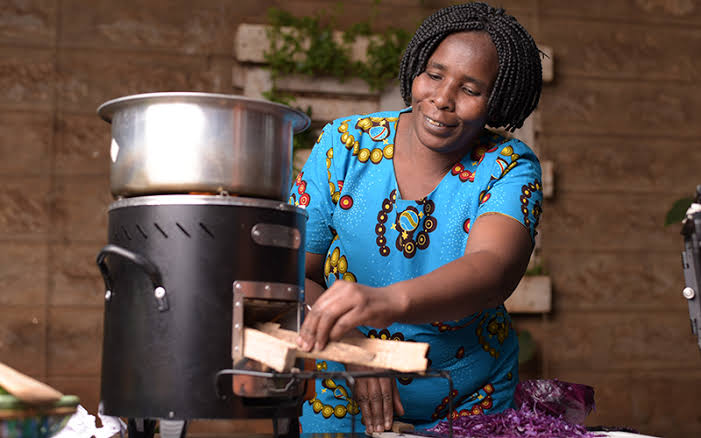KEY POINTS
- Traditional cooking methods cause serious health issues like respiratory diseases.
- Clean cooking solutions reduce harmful pollutants and improve air quality.
- Adopting clean cooking technologies offers economic and health benefits for families.
In many developing countries, the way people cook can have significant impacts on their health. Traditional cooking methods that rely on wood, charcoal, or coal are not only inefficient but also harmful.
These fuels release dangerous pollutants that contribute to respiratory diseases, cardiovascular conditions, and other health problems.
Fortunately, clean cooking solutions, such as clean stoves and solar-powered cookers, offer a sustainable and healthier alternative. These innovations are changing the lives of households and improving public health outcomes.
Traditional cooking methods pose health risks
In many regions, especially in rural areas, families still rely on open fires or traditional stoves powered by biomass fuels. This method is not only inefficient, but it also exposes individuals to harmful indoor air pollution.
The World Health Organization (WHO) estimates that nearly 3 billion people worldwide are affected by household air pollution, primarily caused by cooking with solid fuels.
The fine particulate matter and toxic gases released during cooking can lead to chronic respiratory diseases, eye infections, and even premature death. Children and women, who spend more time indoors, are especially vulnerable to these health hazards.
Clean cooking solutions improve indoor air quality
Clean cooking technologies, such as improved cookstoves and clean-burning fuels like liquefied petroleum gas (LPG), reduce the emission of harmful pollutants, significantly improving indoor air quality.
These solutions not only enhance cooking efficiency but also reduce the time and effort required to gather firewood or other fuel sources.
By adopting clean cooking solutions, households can drastically reduce the exposure to dangerous smoke and toxins, thus lowering the risk of respiratory diseases like pneumonia, asthma, and chronic obstructive pulmonary disease (COPD).
Economic and health benefits for households
The benefits of clean cooking solutions go beyond health improvements. With cleaner, more efficient cooking methods, households can save money on fuel costs.
In many communities, families spend a large portion of their income on firewood or charcoal, a cost that is eliminated with the adoption of cleaner technologies.
Additionally, cleaner cooking can increase productivity by reducing the time spent on cooking and fuel collection. Healthier families mean fewer days lost to illness, allowing people to work, attend school, and contribute to the economy.
Governments, NGOs, and international organizations are working to expand the availability of clean cooking solutions in underserved areas.
However, challenges remain, including affordability, access to technologies, and public awareness. The push for clean cooking solutions is crucial not only for improving public health but also for achieving broader goals such as sustainable development and reducing climate change.



